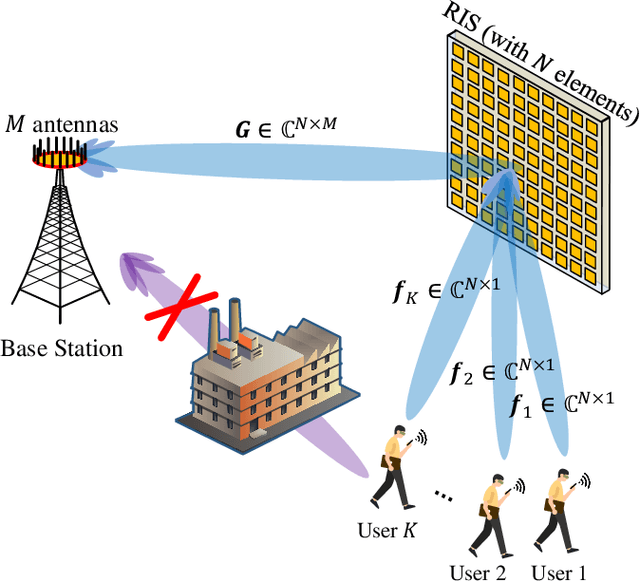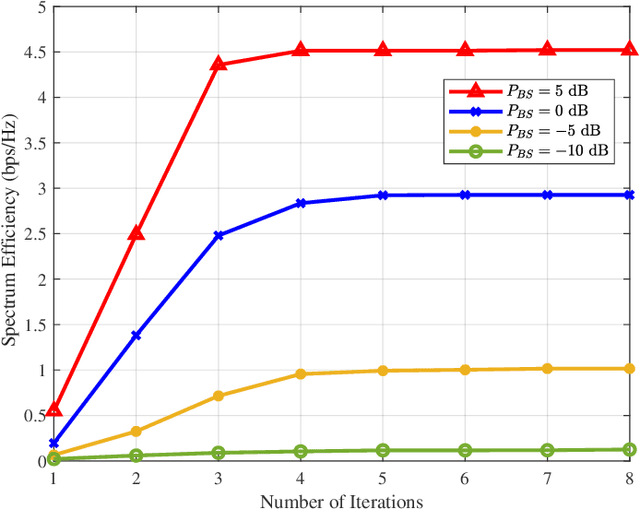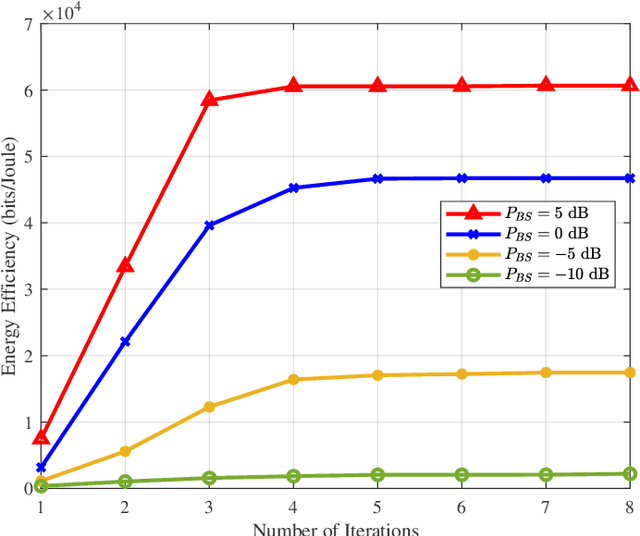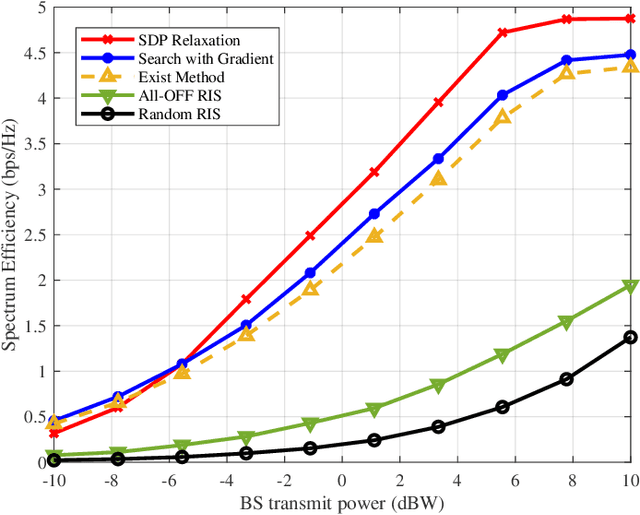Jida Zhang
Enhancing Energy Efficiency for Reconfigurable Intelligent Surfaces with Practical Power Models
Oct 24, 2023



Abstract:Reconfigurable intelligent surfaces (RISs) are widely considered a promising technology for future wireless communication systems. As an important indicator of RIS-assisted communication systems in green wireless communications, energy efficiency (EE) has recently received intensive research interest as an optimization target. However, most previous works have ignored the different power consumption between ON and OFF states of the PIN diodes attached to each RIS element. This oversight results in extensive unnecessary power consumption and reduction of actual EE due to the inaccurate power model. To address this issue, in this paper, we first utilize a practical power model for a RIS-assisted multi-user multiple-input single-output (MU-MISO) communication system, which takes into account the difference in power dissipation caused by ON-OFF states of RIS's PIN diodes. Based on this model, we formulate a more accurate EE optimization problem. However, this problem is non-convex and has mixed-integer properties, which poses a challenge for optimization. To solve the problem, an effective alternating optimization (AO) algorithm framework is utilized to optimize the base station and RIS beamforming precoder separately. To obtain the essential RIS beamforming precoder, we develop two effective methods based on maximum gradient search and SDP relaxation respectively. Theoretical analysis shows the exponential complexity of the original problem has been reduced to polynomial complexity. Simulation results demonstrate that the proposed algorithm outperforms the existing ones, leading to a significant increase in EE across a diverse set of scenarios.
 Add to Chrome
Add to Chrome Add to Firefox
Add to Firefox Add to Edge
Add to Edge